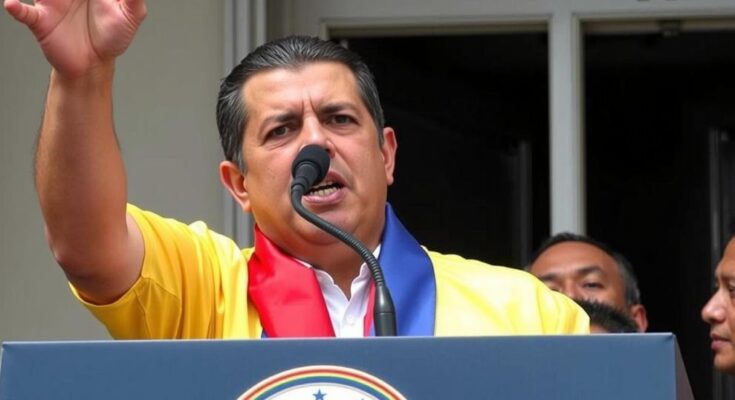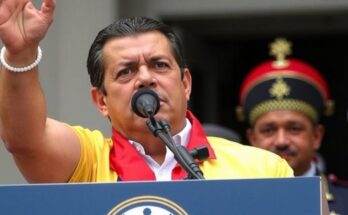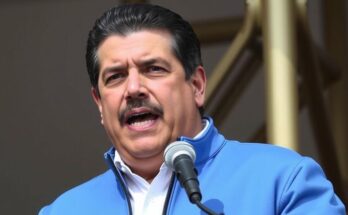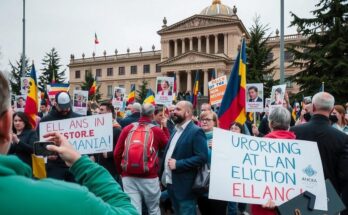Venezuelan President Nicolás Maduro is set to be sworn in for a third term on January 10, 2025, amid allegations of electoral fraud and significant public opposition. Protests led by María Corina Machado, a barred opposition leader, have escalated, with international leaders condemning the government’s suppression of dissent. The election results remain disputed, heightening tensions in a country struggling with democracy and governance.
On Friday, January 10, 2025, Venezuelan President Nicolás Maduro will be inaugurated for a third six-year term, a decision that comes amidst substantial allegations of electoral fraud and widespread protests. Despite credible claims suggesting that his opponent, Edmundo González, won the recent election held on July 28, Maduro’s administration declared him the victor instantly after the polls closed. Protests ignited across Caracas, led notably by opposition figure María Corina Machado, who has been barred from running for office.
Amidst these tensions, Machado faced harassment from security forces, leading to her brief detention while advocating for the rightful swearing-in of González instead of Maduro. These developments have drawn international condemnation, with leaders from the Americas and Europe criticizing the Venezuelan government’s suppression of dissent. Among them was U.S. President-elect Donald Trump, who expressed concern for the safety of opposition figures, insisting that “These freedom fighters should not be harmed, and MUST stay SAFE and ALIVE!”
The electoral process itself has come under severe scrutiny, as the government has not provided detailed vote counts—a deviation from prior elections. While Maduro’s loyal electoral authorities declared him the winner, opposition groups reported that voting data indicated González received far more support than Maduro. Despite Maduro’s request for a court audit of the election, the ruling administration has failed to deliver transparency regarding the electoral results.
In the lead-up to the inauguration, the atmosphere has been charged with unrest, resulting in mass arrests and tragic fatalities among demonstrators, with over 20 individuals reportedly killed in the protests. Notably, President Gustavo Petro of Colombia has announced his intention to forgo the event, signaling dissatisfaction with the current political situation. There is uncertainty as to whether González, currently in exile, will return to partake in the inauguration, particularly in light of threats against him from the Maduro government.
As the political plight in Venezuela reaches another turning point, the implications of Maduro’s inauguration for both domestic unrest and international relations remain uncertain, raising critical questions regarding the future of democracy in the country.
In the context of Venezuela’s ongoing political crisis, Nicolás Maduro’s administration has faced significant accusations of electoral fraud and repression of opposition voices. The most recent presidential election on July 28 was marred by controversies, with the opposition claiming their candidate, Edmundo González, achieved a clearer electoral victory than Maduro. The government’s refusal to provide transparent vote counts has exacerbated concerns among citizens and international observers regarding the integrity of the electoral process. Protests against Maduro’s rule have proliferated, driven by discontent with his increasingly authoritarian regime. This tension has been marked by the brief detention and harassment of opposition leaders, including María Corina Machado, leading to international scrutiny of Venezuela’s political situation.
In conclusion, Nicolás Maduro’s imminent inauguration for a third term is overshadowed by severe allegations of electoral fraud and widespread public dissent. The situation has escalated into protests demanding recognition of Edmundo González as the rightful president, alongside international calls for the protection of opposition figures. The ongoing political turmoil reflects the broader struggle for democracy in Venezuela, with unpredictable implications for future governance and civil liberties in the country.
Original Source: apnews.com




